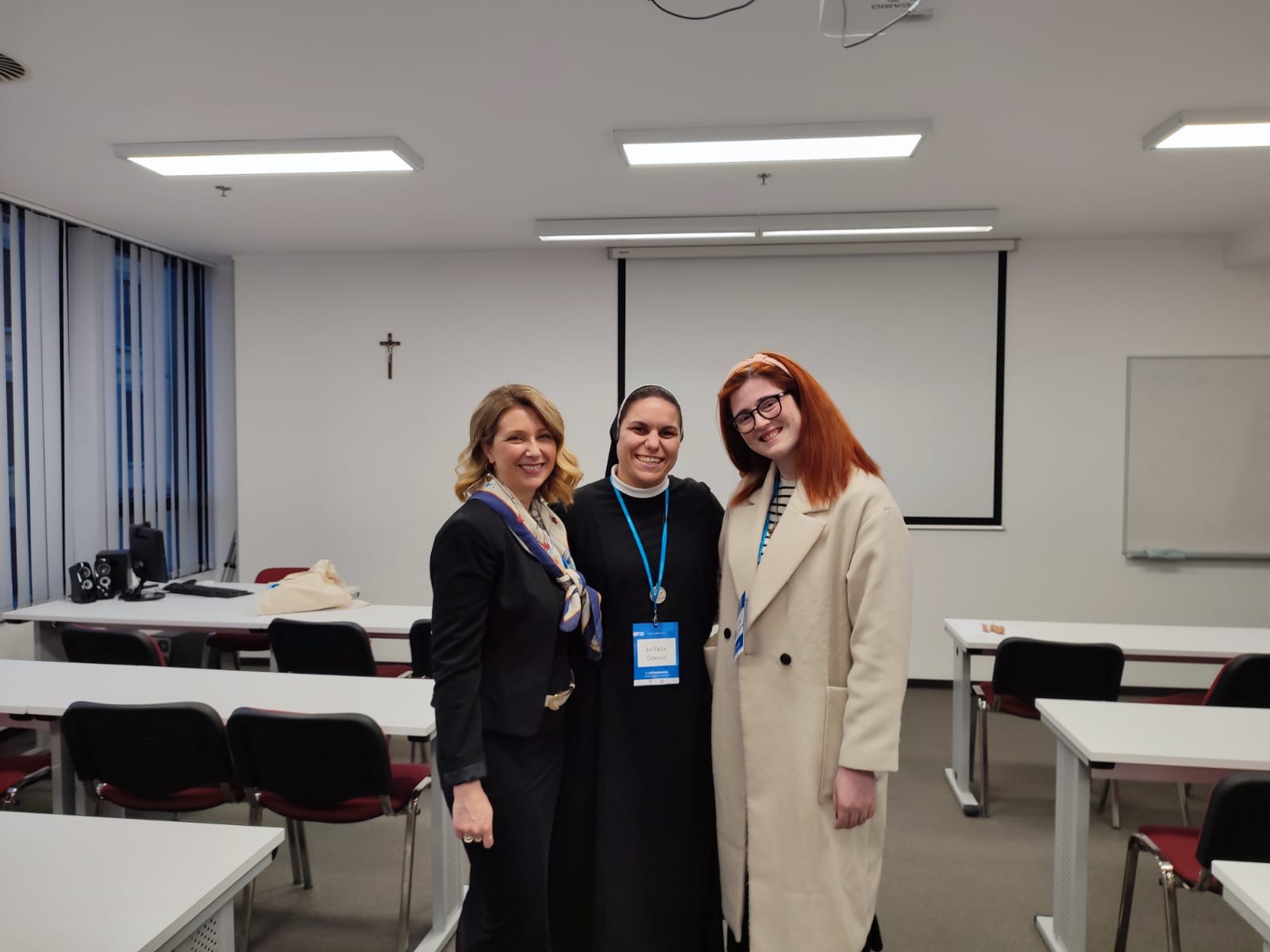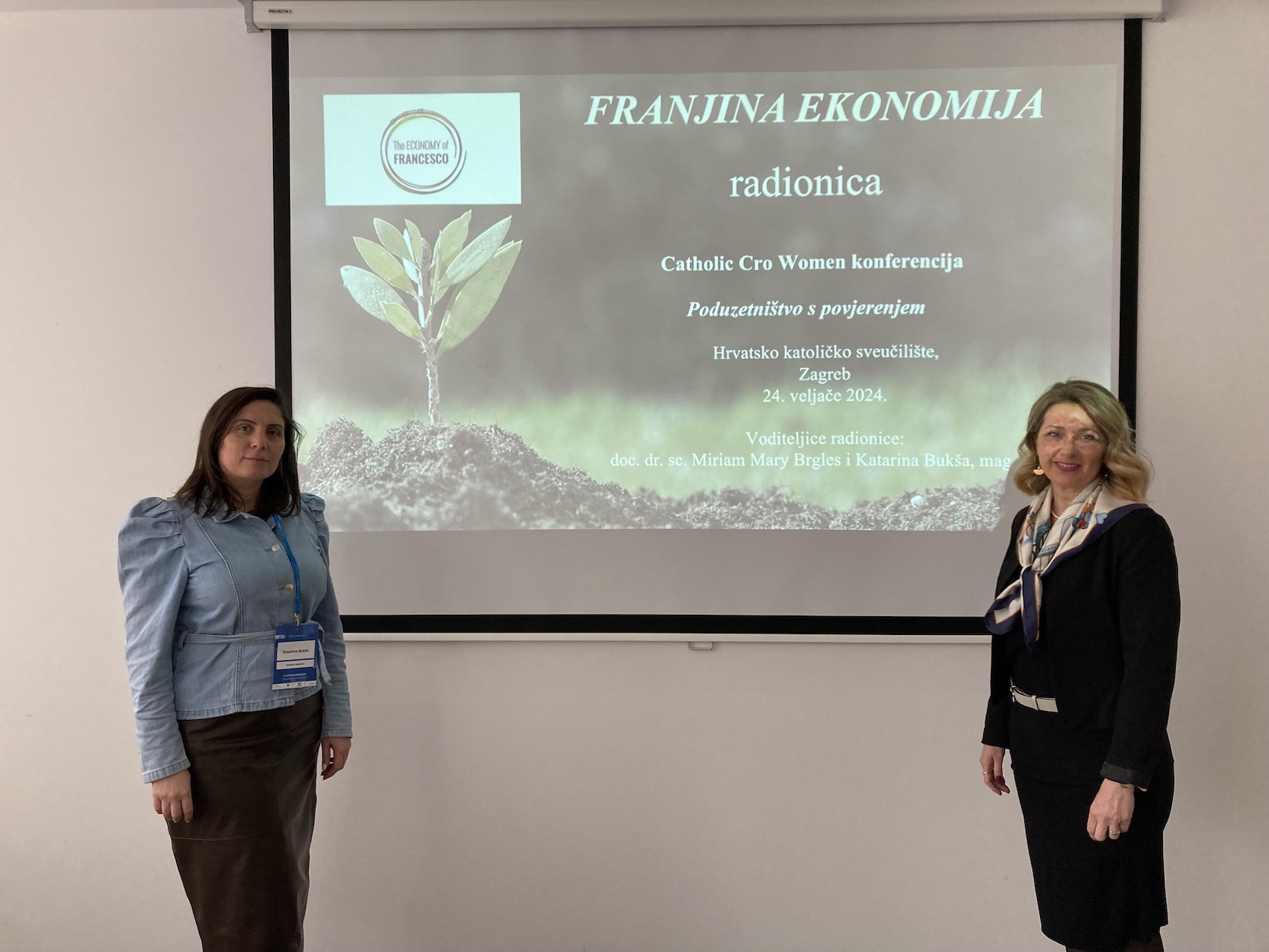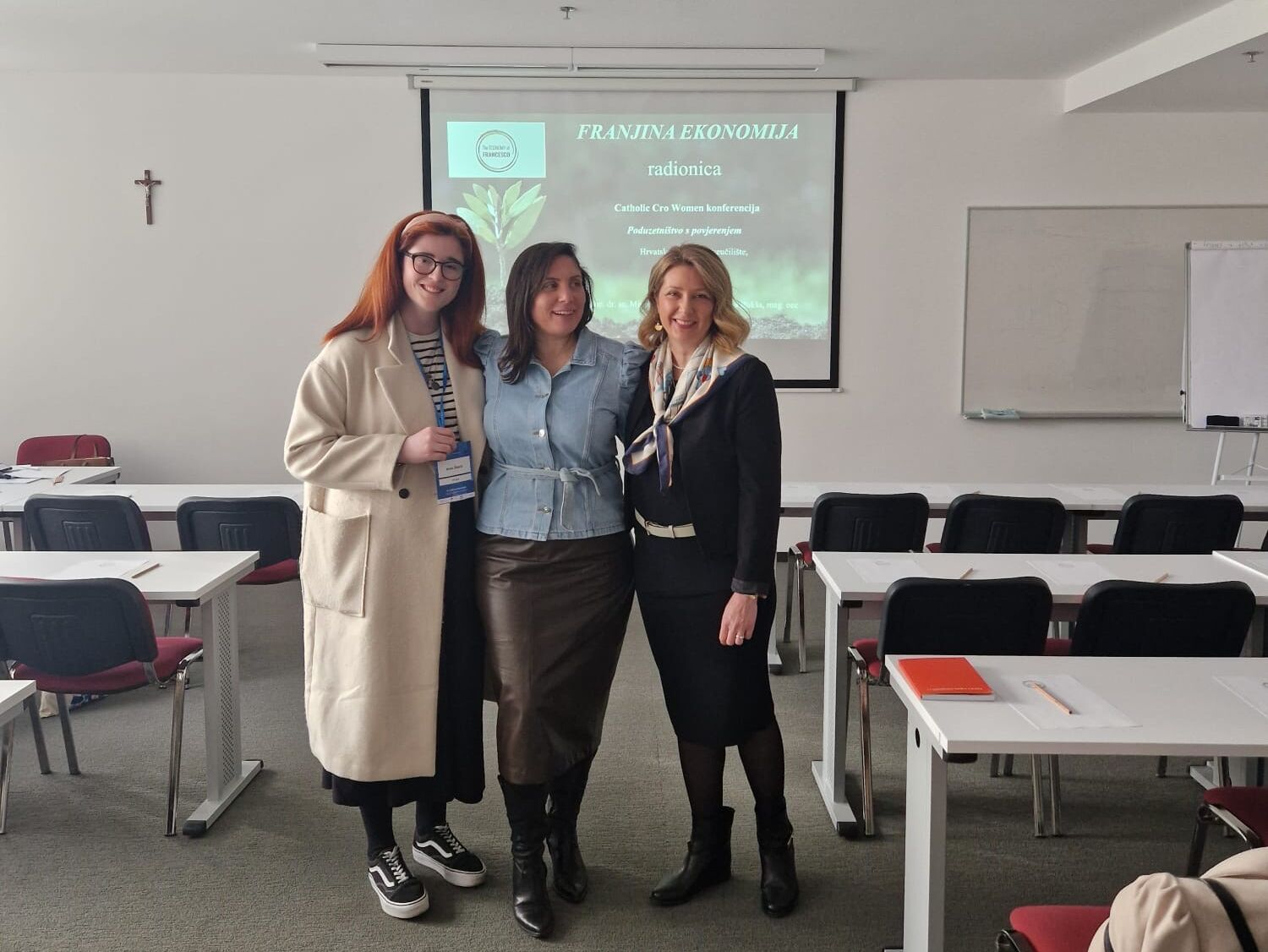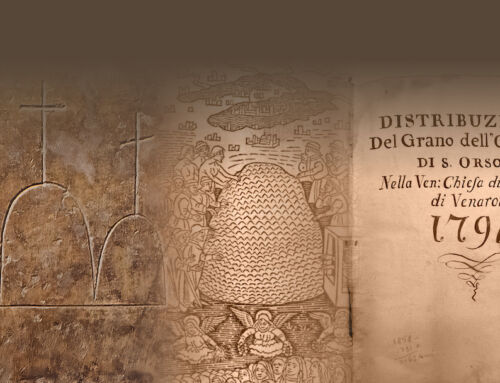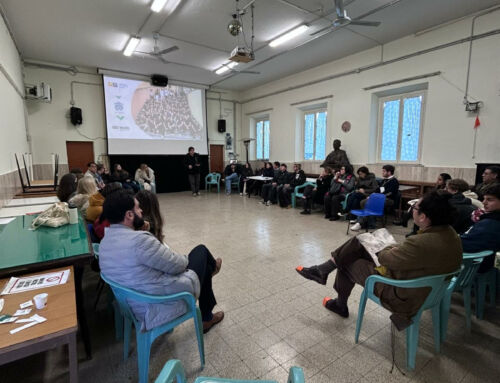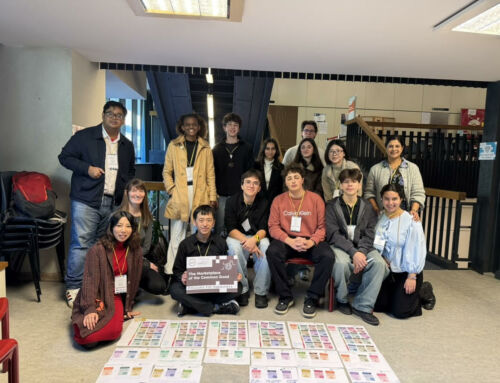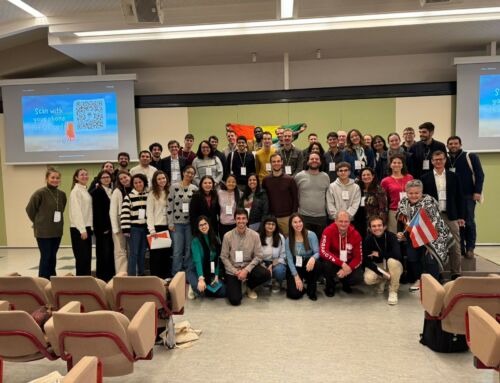The Economy of Francesco workshop at the second Catholic CRO Woman Conference
Entrepreneurship with Confidence
by Miriam Mary Brgles (PhD, Assistant Professor – Department of Sociology – Hrvatsko katoličko sveučilište / Catholic University of Croatia, Zagreb)
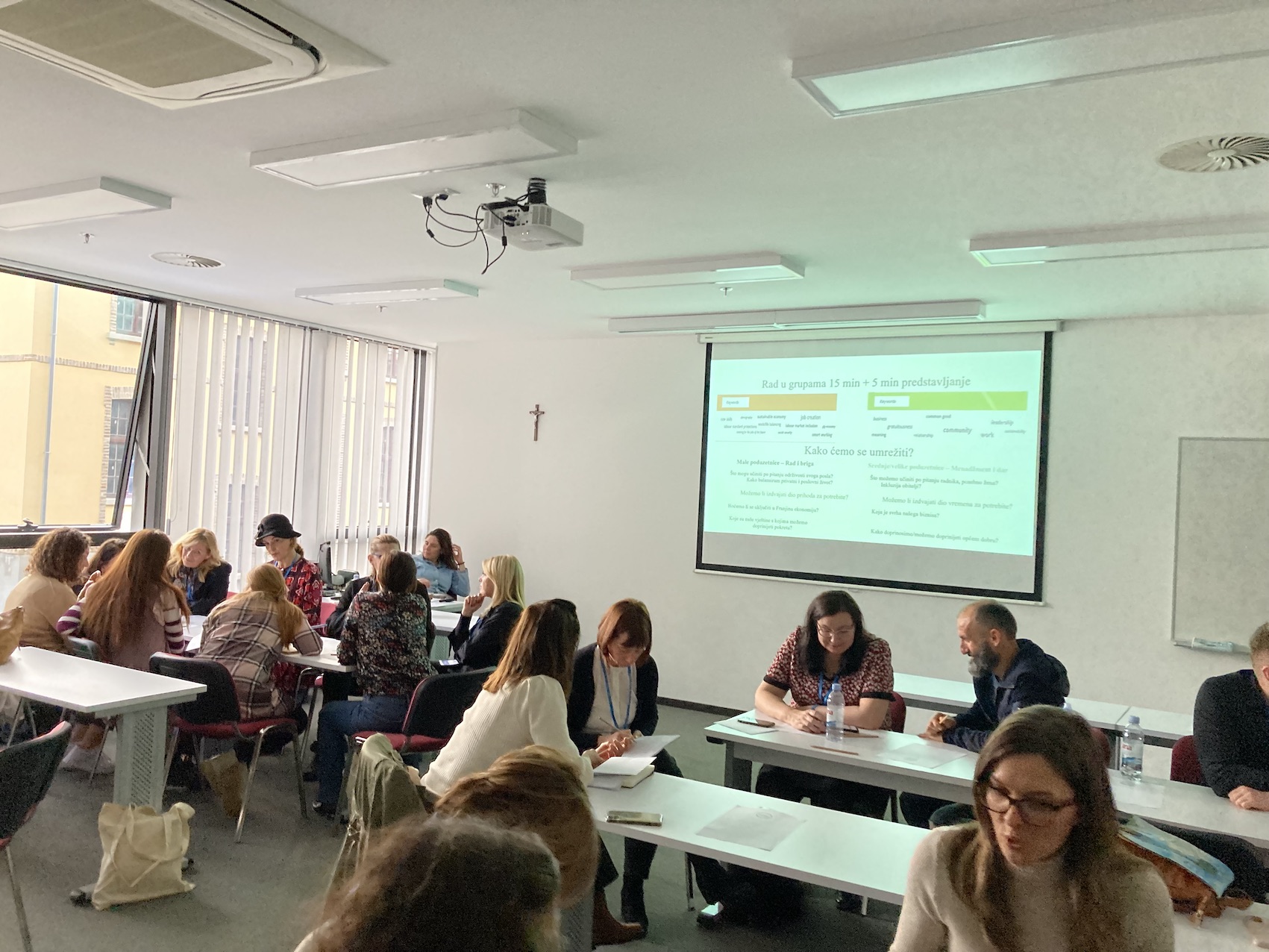
On February 24, 2024, the second Catholic Cro Woman Conference was held at the Catholic University of Zagreb. The conference was organized by the association Entrepreneurship with Trust, and the conference was attended live by more than five hundred participants.
The meeting began at 9 a.m. with the Eucharistic celebration in Basilica of St. Anthony of Padua in Zagreb, presided by the Rector of the Basilica, Fr. Ivan Marija Lotar. Five excellent speakers gave lectures in the first part of the conference: Mirjana Topčić, Nada Rukavina, Eva Vukina, don Damir Stojić and don Mihovil Korkut. Vanessa Mijoč, Stjepan Lach, Pava Ravenšćak and the Halužan sisters also enriched the meeting with music.
In the afternoon, participants participated in group workshops. One of the workshops, entitled The Economy of Francesco, was prepared and led by Katarina Bukša, coordinator of the EoF hub Croatia, and Miriam Mary Brgles, assistant professor at the Department of Sociology at the Catholic University of Croatia.
Over thirty participants participated in the workshop.
Katarina and Miriam Mary presented the basic goals, activities and villages of the EoF and the activities of the Croatian hub in the first part.
In the second part, the group split into small, medium and large entrepreneurs and those who are just starting a business. According to the groups, participants reflected on the issues of following villages: Women in Economics, Management and Gift and Work and Care. Some of the questions they were reflecting about were: What is the purpose of our business? What can we do about workers, especially women? What can we do about the sustainability of our business? Can I set aside some of the income or time for the poor/people in need? Also, the main questions of the workshop were how to network, what skills can contribute to the EoF and would they be happy to join the movement? In the end, each group briefly presented its reflections and ideas, and the main conclusions are that their talents should be used to contribute to the common good, that more “than a tenth” should be allocated to people in need/poor when the company’s revenues grow, and that it is sometimes important to “stop” the growth of their business in order to achieve a balance between family and private life.

